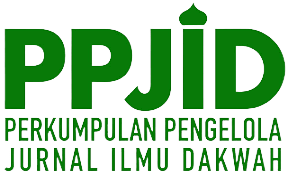Ethical Standards for Publication
Ethical standards for publication exist to ensure high-quality research publications, public trust in research findings, and that people receive credit for their ideas. This statement is based on COPE's Best Practice Guidelines for Journal Editors.
Plagiarism
All journals published are committed to publishing only original material, i.e. material that has neither been published elsewhere nor is under review elsewhere. Manuscripts that are found to have been plagiarized from a manuscript by other authors, whether published or unpublished, will incur plagiarism sanctions. Screening plagiarism by using Turnitin with a maximum similarity score of 20%.
Duplicate Submission
Manuscripts that are found to have been published elsewhere, or to be under review elsewhere, will incur duplicate submission/publication sanctions. If authors have used their own previously published work or work that is currently under review, as the basis for a submitted manuscript, they are required to cite the previous work and indicate how their submitted manuscript offers novel contributions beyond those of the previous work.
Citation Manipulation
Submitted manuscripts that are found to include citations whose primary purpose is to increase the number of citations to a given author’s work, or to articles published in a particular journal, will incur citation manipulation sanctions.
Data Fabrication and Falsification
Submitted manuscripts that are found to have either fabricated or falsified experimental results, including the manipulation of images, will incur data fabrication and falsification sanctions.
Improper Author Contribution or Attribution
All listed authors must have made a significant research contribution to the research in the manuscript and approved all its claims. It is important to list everyone who made a significant research contribution, including students and laboratory technicians.
Redundant Publications
Redundant publications involve the inappropriate division of study outcomes into several articles.
Sanctions
If there are documented violations of any of the above-mentioned policies in any journal, regardless of whether or not the violations occurred in a journal published by Islamic Communication and Broadcasting Department, Universitas Muhammadiyah Yogyakarta, Indonesia, the following sanctions will be applied:
Immediate rejection of the infringing manuscript
That any information that may be the reason for the rejection of publication of a manuscript must be communicated to the Editor.
Plagiarism Policy
Regarding the plagiarism, all the authors submitting papers to the Journal of Islamic Communication and Counseling (JICC) should ensure that their paper is free from PLAGIARISM. The publisher and journal have a policy of “Zero Tolerance on Plagiarism”. We check the plagiarism issue through two methods: reviewer check and plagiarism prevention tool. All submissions will be checked by TURNITIN before being sent to reviewers. The editor will check all papers by using the plagiarism tool http://smallseotools.com/plagiarism-checker.
Copyright Form
Submission of a paper in any journal of Islamic Communication and Counseling (JICC) will be taken to imply that it presents original unpublished work, not under consideration elsewhere. A copyright assignment form will be sent to the authors of accepted papers. This publishing agreement should be completed and returned to the editorial office.




